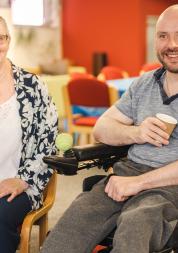Perceptions of Health Inequalities in Milton Keynes

Health inequalities are the unfair, avoidable, and systemic differences in health, health services available, and health outcomes (how people keep their level of health or how their health is improved by treatment) between different groups of people.
Health inequality in action:
- The rate of women dying in the UK in 2016–18 during pregnancy, or up to one year after, pregnancy is more than four times higher for Black women, and almost double for Asian women, than for White women
- The risk of developing diabetes is up to six times higher in South Asian groups than in white groups.
- Deaths from the pandemic among people from ethnic minority backgrounds were two to four times greater than those of the white population.
- 40% of LGBT people report health appointments being postponed or missed during COVID, peaking at around 50% of trans people, compared with 35% of cis people.
- People with learning disabilities have 15 to 20 years shorter life expectancy and 38% die from avoidable causes.
Our report
Between July 2021 and March 2022 we were involved both as hosts and guests at various listening events across Milton Keynes . We gathered views and experiences from residents in Milton Keynes of health inequalities across health and social care services in the town.
We wanted to explore whether people understood what health inequalities are; what health inequalities people experience when trying to access health and social care services and, what would people like to see the health and social care system do to reduce the inequality.
We spoke to people in Milton Keynes to understand the specific inequalities they face and how they hinder equal access and patient satisfaction across health and social care service in Milton Keynes.
This report details our findings and makes recommendations for change.
